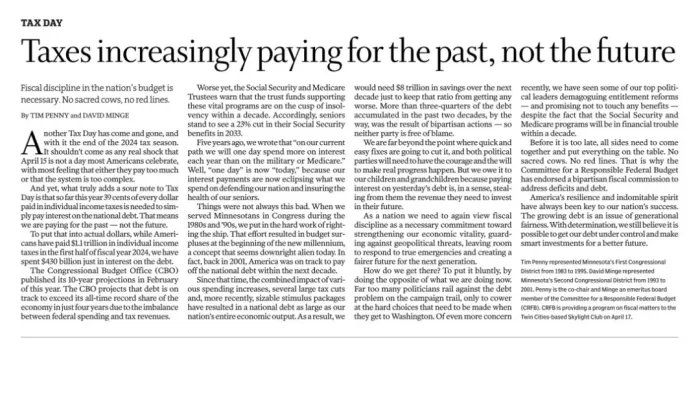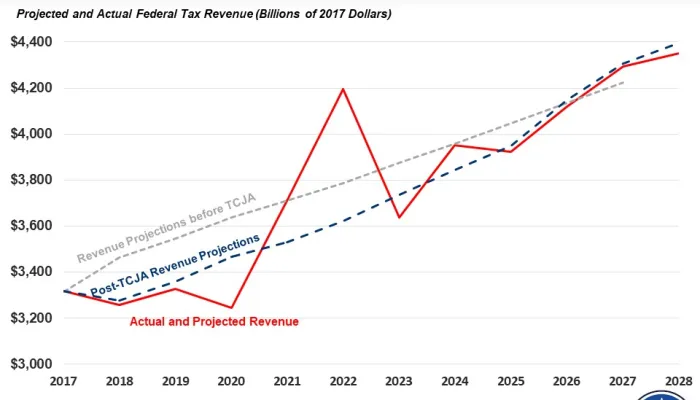FAA Bill Should Not Turn Into an April Christmas Tree
Update: The Congressional Budget Office has released its score of the Senate FAA bill, estimating that it would reduce ten-year deficits by a small amount.
A bill to reauthorize the Federal Aviation Administration is in danger of becoming a vehicle for more tax breaks. Senators are currently discussing adding renewable energy tax credits to the bill that are set to expire at the end of this year, and while the budgetary impact may be modest, it could set off a spending spree.
The bill would reauthorize the FAA through FY 2017 and make several changes to FAA operations. There is no CBO estimate for the bill, but it could become irresponsible based on current negotiations about extensions of tax breaks. Senators are discussing adding some renewable energy production tax credits that were extended only through 2016 in last year's tax deal. While the cost would be very modest, reportedly $1.4 billion over ten years depending on what's included, that might not be the end of the story.
The House FAA bill is different in that it would turn over air traffic control duties from the Federal Aviation Administration to a non-profit corporation, who in turn would assess fees to fund its operations. That policy will result in air traffic control spending shifting from discretionary to mandatory spending, which would increase allow for increased spending unless lawmakers lower the discretionary spending caps by the amount of the spending shift. If they do lower the caps, the bill would still increase deficits by $4 billion over ten years due to increased capital spending, but the total would be much larger if they don't. The House Budget Committee's budget resolution creates a deficit-neutral reserve fund for air traffic control reform but only on the condition that the discretionary caps are reduced, and lawmakers should follow that example if they take that approach.
The bill so far has only advanced out of committee, but if that is the approach that the House prefers, those differences will need to be resolved. If the Senate is already discussing adding unrelated tax provisions to its bill, that leaves open the possibility that more could join them as the final bill comes together. Disregard for budgetary discipline can quickly blow up the size of the bill as we saw with the tax cut passed in December. This is why it is important to apply pay-as-you-go rules consistently: it forces lawmakers to confront trade-offs when they add additional costs rather than allowing them to ignore costs from the beginning.
These expiring tax provisions should be dealt with on their own, but if they are included, lawmakers should commit to offsetting their cost, as Finance Committee Chairman Orrin Hatch (R-UT) has commendably said (though that should have been the case last year too). If the cost is modest, it should be very easy to abide by PAYGO, and if the cost is too steep for lawmakers to offset, that is the sort of trade-off that PAYGO is meant to create. Lawmakers already did not pay for the large tax cut they enacted last year. They should certainly not continue to extend tax provisions without offsets.


